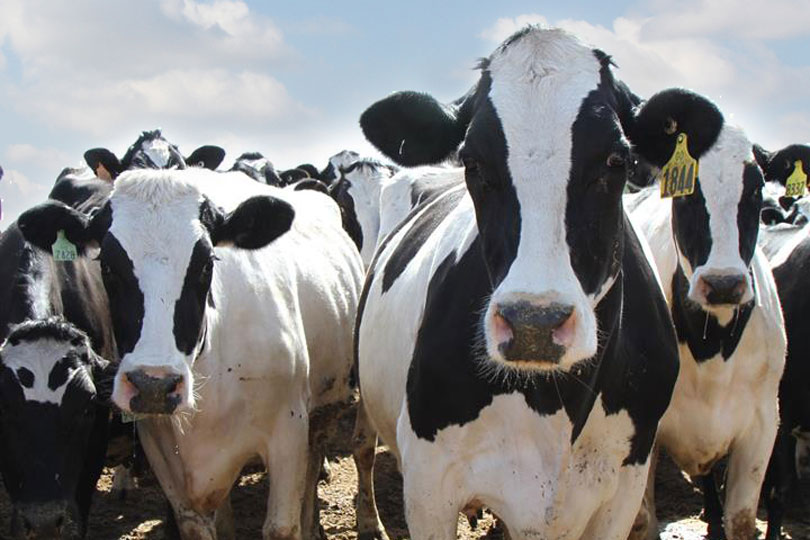By Jessica Domel
Multimedia Reporter
Despite good weather and production last year, 2019 could be tough for the Texas dairy industry.
“We’re just not getting paid much for the milk, and so a lot of guys are really in tough times as we start the year,” Darren Turley, executive director of the Texas Association of Dairymen, said in an interview with the Texas Farm Bureau (TFB) Radio Network.
At the end of the year, the National Milk Producers Federation (NMPF) predicted a 2019 average all-milk price of $16.20 per hundredweight.
If realized, that would be the lowest all-milk price since 2009.
Not only are milk prices down, feed prices are up, making it tougher for many dairy farmers to make ends meet.
To make matters worse, in July 2018, China began levying an additional 25 percent retaliatory tariff on U.S. dairy products.
According to NMPF, that pushed the monthly average of U.S. dairy products to China down by about a third in terms of both volume and value.
Total U.S. dairy exports, other than those to China and sales of cheese to Mexico, were down by four percent in volume in the second half of 2018 compared to the first part of the year.
But there is good news. Last year, Congress took action to revamp the Margin Protection Program (MPP) from the 2014 Farm Bill to provide more of a safety net as milk prices continued to fall.
Through the Bipartisan Budget Act of 2018, MPP changed to include monthly calculations of program benefits, reduction of Tier 1 premiums, increasing Tier 1 eligibility and increasing the minimum catastrophic coverage level for small and medium dairies.
The program continued to improve through the 2018 Farm Bill, where it was renamed Dairy Margin Coverage (DMC).
“I think it’s great that we’ve got something built into the farm bill for dairies,” Turley said. “Protection for us is good. I think we really haven’t had anything in quite some time that was really effective, so this is the first thing we’ve seen that’s really been beneficial to producers, even though we haven’t used it a lot yet.”
DMC is a voluntary program that makes payments when the national average income-over-feed-cost margin falls below a coverage level selected by dairy farmers during sign-up.
“I think we’re going to see some better calculation numbers for feed costs that will help kick in more efficiently,” Turley said.
In Texas, the fifth-largest dairy-producing state in the nation, there’s more good news.
“Last year, we had some plants being built, and we still have one of those (in construction). The Select plant in Littlefield in the old denim mill is due to open at the end of March or first of April,” Turley said. “That’s kind of buffered us a little bit more than a lot of the country, because we had new capacity online.”
Despite the addition of the milk powder plant in the Panhandle and the upcoming butter powder plant in Littlefield, the dairy industry in Texas couldn’t avoid feeling the impact of low milk prices forever.
“It’s continued long enough that most of our producers are feeling it now,” Turley said.

